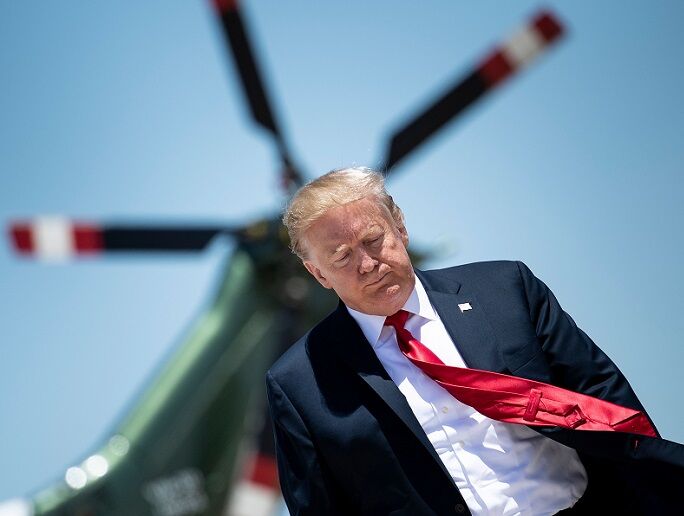ID :
568917
Tue, 06/23/2020 - 22:12
Auther :
Shortlink :
https://www.oananews.org//node/568917
The shortlink copeid
Trump's last bid to negotiate with Iran

Tehran, June 23, IRNA – The ups and downs in Tehran-Washington relations in the past year hasn't faded the emphasis on negotiation in the White House's discourse; the notion has rather become an important keyword of the Trump administration because of the current domestic and international problems they got involved.
US President Donald Trump has recently made several remarks suggesting his readiness to quickly make a deal with Iran that shows Washington's scramble to use the 'negotiation' card in the current domestic circumstances that Trump is in weakest position against his rivals as presidential election looms.
From invitation to talks to threatening
Trump has used different instruments from encouraging to threatening against Iran to bring it to negotiating table with the purpose of using talks with senior officials of Islamic Republic of Iran as an advertising for his election campaign.
He has frequently claimed that Iran is waiting for Joe Biden's victory in the forthcoming election, inviting Iranian leaders to make a deal with him arguing that he would win presidency.
Trump has also threatened Iran to be forced to pay much more for a deal in case it waits out Trump's first term investing on advice given by Biden's aides and former US Secretary of State John Kerry who Trump claims have counseled Iran to do so.
Unlike what some media say about secret talks between Tehran and Washington that bespeak a positive perspective of negotiations, the developments suggest possibility of negotiations has become unlikely more than ever.
Disappointing domestic situation for Trump
Trump's unthoughtful remarks on the widespread protests in the United States rejecting structural racism in the country after the killing of African-American citizen George Floyd by a white police officer fueled the unrest and gave a clearer image of his incompetence in domestic affairs.
This added to the already existing discontent over the President's management of the coronavirus outbreak which made a more realistic image of his presiding of the nation.
Moreover, the release of John Bolton's memoir of his term in Trump's administration entitled "The Room Where It Happened" which made breaking revelations of flaws and political scandals in his handling of domestic and foreign affairs was another blow to Trump's already dying campaign.
Trump's trump card which was historical decline in America's unemployment rate and record-breaking economic growth was so hampered by the aftermath of the coronavirus outbreak that it is not anymore considered a factor winning for him in the election.
Trump's foreign policy profile
The once businessman president of the United States has neither left a secure profile in foreign policy after nearly four years in office. His relationship with North Korea's Kim Jong-Un has now returned to threatening once again after an interval of diplomacy show.
One of the United States' foreign policy challenges, the relations with North Korea is now identified by doubled distrust. Experiencing an escalation with South Korea, Pyongyang has threatened to obliterate the United States if war resumes in the Korean Peninsula.
US relations with China, Russia and even allied Europe and international bodies also follow a similar pattern of distrust. Trump's exiting of international deals one after another along with his weird remarks and decisions has made his foreign policy record weaker than ever.
Iran's rejection of negotiation with a declining power
Islamic Republic of Iran has concluded that negotiation with Trump administration, under the current circumstances, is totally 'unproductive'. US withdrawal from the nuclear deal, formally known as the JCPOA, has ruined the possibility of any negotiation. However, Iran has stated that any potential negotiation requires Washington's re-entering the deal and lifting all sanctions restored against Tehran.
But now for Iranian officials, in the current situation, negotiation with the United States has lost credibility in essence, as Iran's parliament speaker Mohammad Baqer Qalibaf has said that while Tehran doesn't reject diplomacy, it believes that negotiation with US is 'absolutely harmful and forbidden.'
The remarks may have dashed Trump's hope at a time when he seeks to use bringing Iran to negotiating table as a tool to win over his democratic rival Joe Biden.





